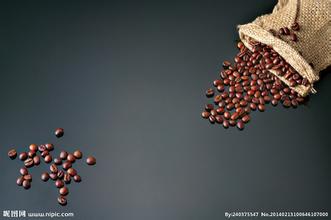Introduction to the quality of the method of describing the taste and flavor of coffee beans in Uganda
The Republic of Dominica (Dominican Republic) is adjacent to Haiti, and both own the island of Hispaniola (Hispaniola). Like its neighbours, the Dominican Republic had a history of revolution and poverty, but now it has democratic elections and the country is relatively stable. Coffee was grown in the Dominican Republic in the early 18th century and is best produced in the Barahona region of the southwest, but Juncalito and Ocoa also produce a fine coffee-Santo Domingo coffee, which is characterized by freshness, elegance, fullness, excellent acidity and pleasant aroma, so it is worth it. Unlike coffee produced in Haiti, most of the coffee grown in the Dominican Republic has been washed, which is a symbol of high quality.
4. El Salvador: a unique coffee with a mild taste.
Salvadoran coffee
El Salvador is one of the small countries in Central America with a dense population. The flavor of its coffee is characterized by excellent balance. Today, this coffee accounts for 40% of the country's exports. 35% of the extra hard beans of the best coffee are exported to Germany from January to March.
In the early 1990s, guerrilla warfare greatly damaged the country's national economy, reducing coffee production from 3.5 million bags in the early 1970s to 2.5 million bags in 1990-1991. The eastern part of the country was the hardest hit by guerrilla warfare, with many farmers and workers forced to leave the manor. The shortage of funds has led to a sharp drop in coffee production, from 1200 kg per hectare in the past to less than 900kg per hectare today, with a mild and simple taste and a papaya flavor.
Dry aroma (1-5): 3.2
Wet aroma (1-5): 3.4
Acidity (brightness) (1-10): 8
Taste (layered) (1-10): 8.5
Taste (alcohol thickness) (1-5): 4
Aftertaste (residue) (1-10): 8.1
Balance (1-5): 0
Basic score (50): 50
Total score (maximum 100): 85.2
Strength / main properties: medium strength / high oil content, simple and mild
Recommended baking degree: full city or full city+
Contrast: a unique African coffee, very similar to Indonesian coffee

Important Notice :
前街咖啡 FrontStreet Coffee has moved to new addredd:
FrontStreet Coffee Address: 315,Donghua East Road,GuangZhou
Tel:020 38364473
- Prev

Panamanian blue standard, green standard, red standard, rose, summer coffee bean story, coffee bean brewing, grinding degree, flavor and taste characteristics
1: very light roasting (LigntRoast) this baking degree also retains the original grassy aroma of coffee beans, may be astringent, and has no aroma and mellow taste 2: cinnamon roasting (CinnamonRoast) is named because its color is similar to meat hanging, and this baking degree belongs to light roasting.
- Next

The caffeine content of Yega Sheffield introduces the flavor characteristics of G 1 coffee beans.
At present, commercial low-caffeine coffee uses dichloromethane solvent or activated carbon and water to extract caffeine from raw beans, but the aroma and oil of coffee will be lost with caffeine. Unfortunately, harmful chemical solvents remain in coffee, so artificial decaf is neither delicious nor healthy. Han Huaizong's essence
Related
- Detailed explanation of Jadeite planting Land in Panamanian Jadeite Manor introduction to the grading system of Jadeite competitive bidding, Red bid, Green bid and Rose Summer
- Story of Coffee planting in Brenka region of Costa Rica Stonehenge Manor anaerobic heavy honey treatment of flavor mouth
- What's on the barrel of Blue Mountain Coffee beans?
- Can American coffee also pull flowers? How to use hot American style to pull out a good-looking pattern?
- Can you make a cold extract with coffee beans? What is the right proportion for cold-extracted coffee formula?
- Indonesian PWN Gold Mandrine Coffee Origin Features Flavor How to Chong? Mandolin coffee is American.
- A brief introduction to the flavor characteristics of Brazilian yellow bourbon coffee beans
- What is the effect of different water quality on the flavor of cold-extracted coffee? What kind of water is best for brewing coffee?
- Why do you think of Rose Summer whenever you mention Panamanian coffee?
- Introduction to the characteristics of authentic blue mountain coffee bean producing areas? What is the CIB Coffee Authority in Jamaica?

